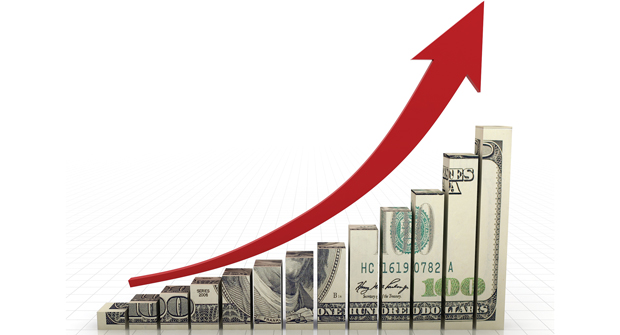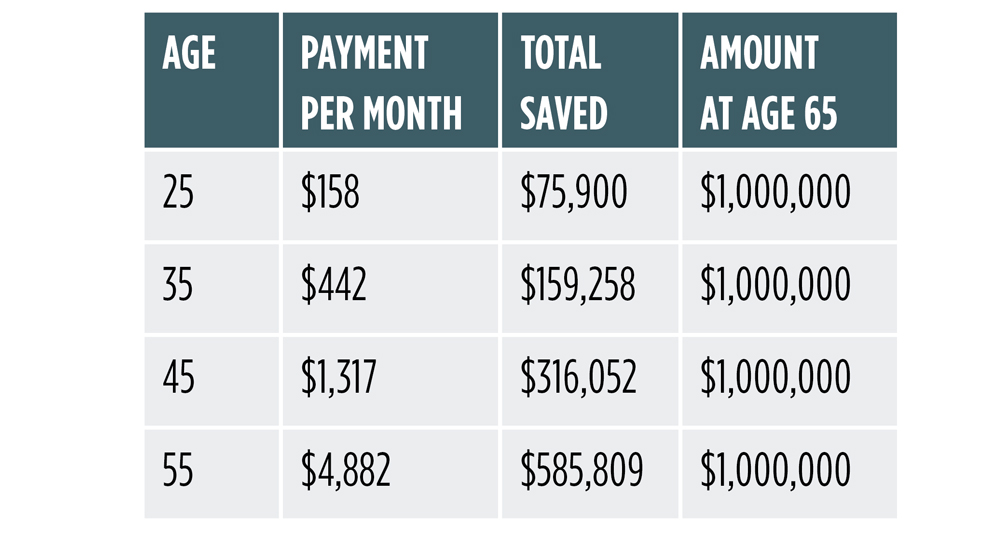
We usually discuss compounding in the context of savings, but the power of compounding is relevant in many areas of business and life. Compounding is the substantial increase that can occur over an extended time if there is consistent action.
There are two ways to think about time — one by hours and the other by the calendar. For some things, you can accelerate calendar time by working more hours or assigning more people to work on the project, like a landscape installation. You cannot reduce the time required for a tree to grow — it requires calendar time.
Compounding requires calendar time. Think of it as putting calendar time on your side. Compounding makes time an ally, not an enemy. It’s a powerful concept that deserves to occupy a significant place in your thoughts about business and life.
Let’s illustrate the power of compounding with some numbers. The chart below shows how much a person at age 25, 35, 45 and 55 must save per month to have $1 million at age 65:

What’s the message from the table above? Start saving early and let calendar time work for you!
Harnessing the power of compounding for your business
Let’s move on to business.
In what areas can you make consistent investments so that in 10 years, 20 years, even 30 years, you create immense value? Value that would be difficult, if not impossible, for your competitors to duplicate? At The Herring Group, we believe that the ultimate measurement of the value you create will be the company’s operating profit margin and the consistency of that margin.
To get you started in your thinking, here are two areas to consider.
- Company brand or reputation: What brand or reputation are you creating? What consistent investments are you making in building that brand or reputation? How do you know if your company’s work and customer service are consistent with that brand?
- Company culture: What would happen if you created a culture that is so strong and attractive that your company became a destination employer (a highly desirable place to work)? How would your life and business be different if you had a waiting list of people who would like to work at your company?
Continually learning
Let’s move on to life. Knowledge compounds. I learned this concept from Warren Buffet and Charlie Munger, probably the world’s greatest investors. Buffet and Munger credit much of their investment success to continuous learning through reading and thinking. Munger advises people to “go to bed smarter than when you woke up.”
I read about business and the Bible most days for more than 40 years. But it’s not just reading. It is also pondering and thinking about what I have read. The Bible helped me to know Jesus, to understand people and establish priorities for life. Even though I have read it many times, my understanding deepens as the knowledge compounds.
I like to read biographies, books about successes and failures and how-to books related to business. As I think about what I read, I try to synthesize, simplify and apply the concepts to my business and my clients’ businesses. I enjoy combining thinking with my bicycle riding — an extended time where I can think freely without interruption.
How are you putting the power of compounding to work?

